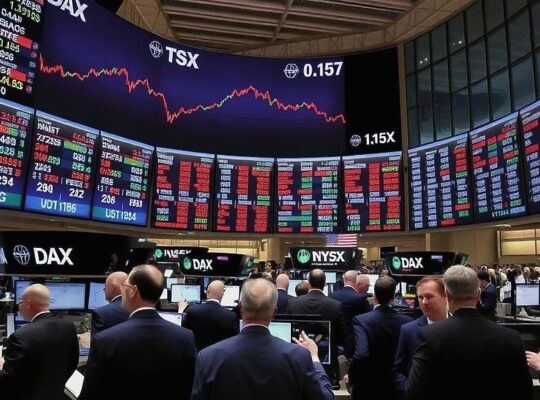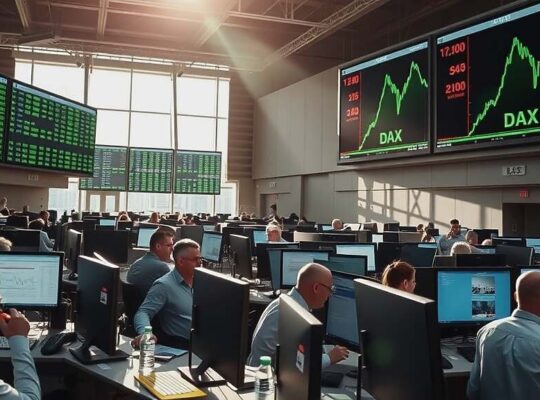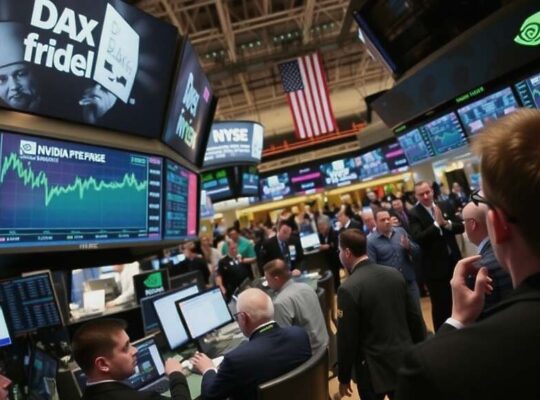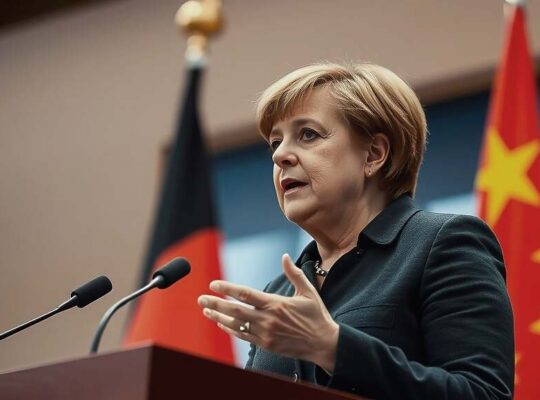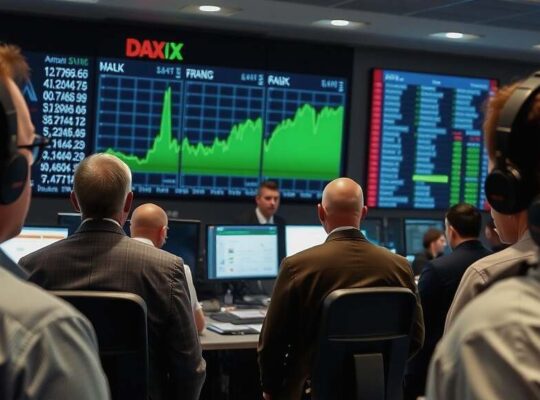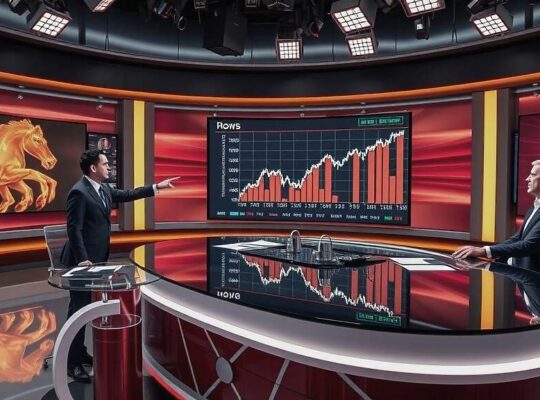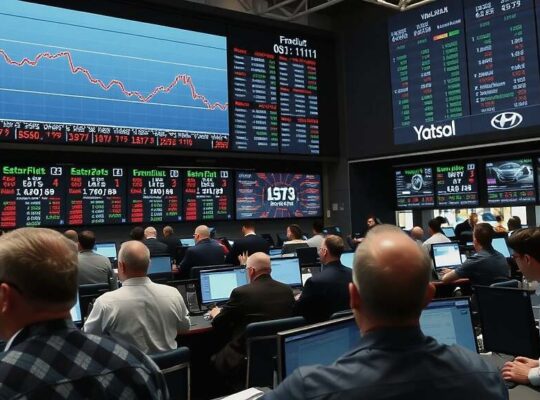German equities opened marginally higher Monday, buoyed by anticipations surrounding a potential trade agreement between the United States and China. The DAX index registered at approximately 24,260 points by 9:30 AM, a slight increase of 0.1 percent from Friday’s closing level. Siemens Energy, Infineon and SAP led the gains, while MTU, Deutsche Börse and Beiersdorf lagged.
The brief rally reflects widespread optimism triggered by weekend signals suggesting a breakthrough in the protracted trade negotiations. As Thomas Altmann of QC Partners observed, these positive indicators have already been largely priced into the market. The prospect of a lasting and sustainable agreement between the world’s two largest economies continues to drive investor sentiment, overshadowing concerns regarding potential tariffs on goods originating from Canada.
However, the lackluster performance relative to US markets raises critical questions about the state of Germany’s economic outlook. Following record highs achieved last Friday for the S&P 500 and Nasdaq 100, the DAX has struggled to keep pace. The S&P 500 has gained an impressive 9.5 percent since the start of the second half of the year, while the DAX has seen a comparatively meager increase of just 1.4 percent. This divergence suggests a growing exodus of investment from Germany, driven by a perception that growth and profit prospects within the country are significantly weaker than those in the United States.
This trend underscores deeper structural issues impacting German competitiveness, raising concerns among analysts regarding a potential loss of confidence in the nation’s long-term economic resilience. The relatively weak performance also signals a need for policymakers to address underlying concerns about Germany’s investment climate and future growth trajectories.
Meanwhile, the euro experienced a slight weakening, trading at $1.1628, a factor which could further influence export-dependent German industries. Crude oil prices also recorded a minimal decrease, with Brent North Sea crude falling to $65.91 per barrel, reflecting muted broader market volatility amidst the ongoing trade negotiations.




